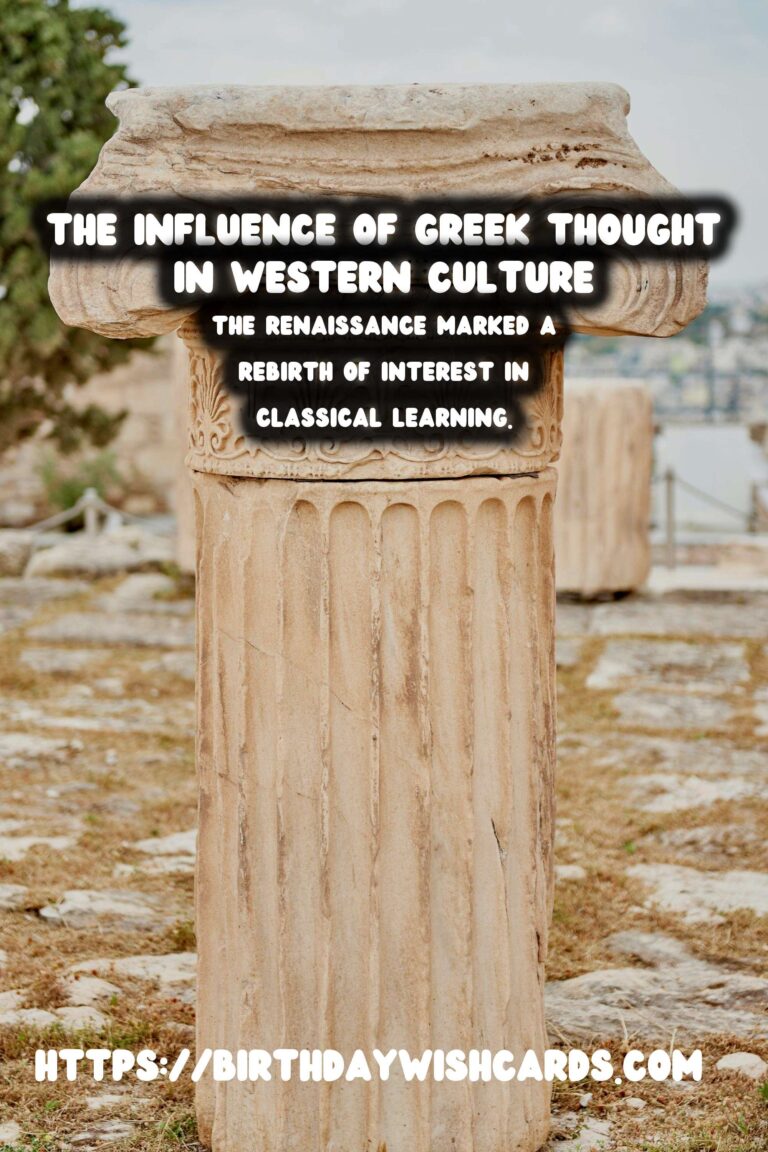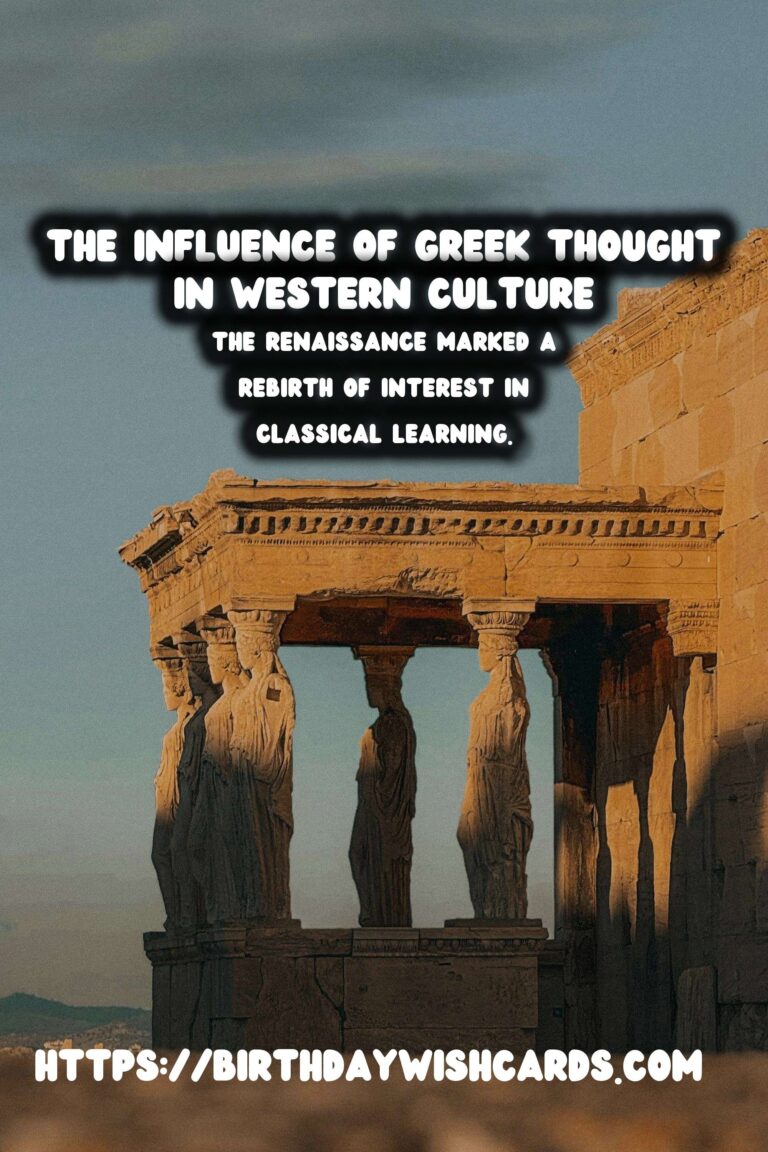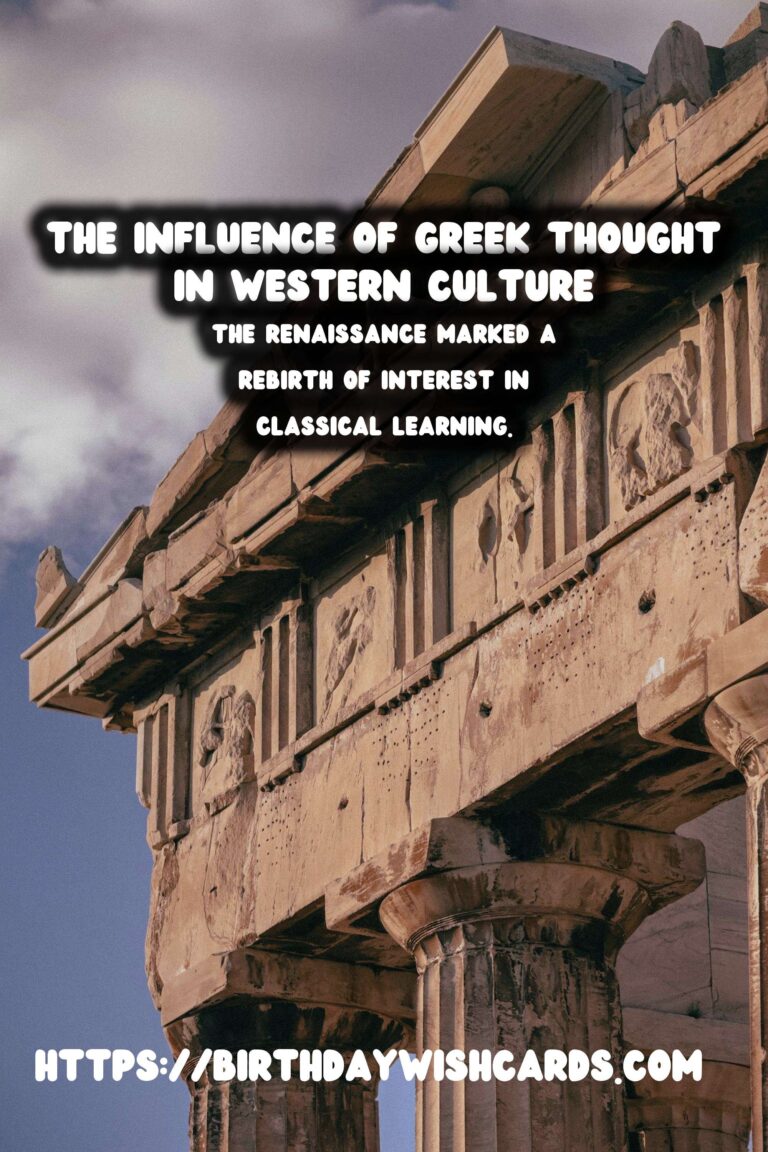
Ancient Greek philosophy has left an indelible mark on the landscape of Western thought. This enduring legacy can be seen in various fields such as politics, science, ethics, and metaphysics. The philosophies that emerged during this pivotal era have shaped modern intellectual thought and continue to resonate in contemporary discourse.
The Birth of Western Philosophy
Ancient Greek philosophy began in the 6th century BCE with thinkers like Thales, Anaximander, and Heraclitus who sought to explain the universe without resorting to mythology. These early philosophers established a tradition of inquiry that focused on using reason and observation to derive explanations of the natural world.
Socratic Method: A Legacy of Rational Inquiry
Socrates, one of the most prominent figures in ancient philosophy, introduced the Socratic method, characterized by asking probing questions to stimulate critical thinking and illuminate ideas. This method laid the foundation for the Western educational system, encouraging a disciplined approach to learning that values questioning and dialogue.
Plato: The Architect of Ideals
Plato, a student of Socrates, furthered the psychological and philosophical depth of these inquiries. His theory of Forms postulated that the material world is a shadow of a higher, unchanging reality. This idea influenced not only philosophy but also Christian theology and Western metaphysics for centuries. Plato’s ‘Republic’ explores justice and the ideal state, deeply impacting Western political thought and model systems.
Aristotle’s Influence on Modern Science
Aristotle, a disciple of Plato, developed a comprehensive system that covered various branches of knowledge, including logic, biology, ethics, and aesthetics. His emphasis on empirical observation and classification laid the groundwork for the scientific method, underpinning the evolution of modern scientific inquiry. His Nichomachean Ethics continues to be a cornerstone in moral philosophy, emphasizing virtue as a path to the good life.
The Stoics and Ethics
The Stoics, including philosophers like Seneca and Epictetus, further advanced Greek thought by focusing on ethics and the idea of self-control as a means to personal happiness. Their teachings on emotional resilience and rationality have found a resurgence in contemporary times through modern self-help movements and cognitive behavioral therapy.
Roman Adoption and Adaptation
The Roman adoption of Greek philosophy involved a synthesis that spread these teachings across the empire. Roman philosophers such as Cicero and Marcus Aurelius preserved and adapted Greek ideas, ensuring their survival through the Middle Ages when Western Europe experienced cultural and intellectual stagnation.
Renaissance Revival
The Renaissance marked a rebirth of interest in classical learning, with Greek philosophy playing a central role. During this period, thinkers like Leonardo da Vinci and Thomas Aquinas revisited ancient texts, rejuvenating Western culture and leading to profound advancements in arts and sciences.
Conclusion: Timeless Influence
The enduring influence of ancient Greek philosophy is reflected in modern political theory, scientific investigation, and ethical standards. This heritage continues to challenge and inspire scholars, encouraging an ongoing exploration of the human condition and our understanding of the universe. The wisdom of ancient Greece remains relevant as a testament to humanity’s quest for knowledge and truth.
Ancient Greek philosophy has left an indelible mark on the landscape of Western thought. The Renaissance marked a rebirth of interest in classical learning. 









#philosophy #ancientGreece




